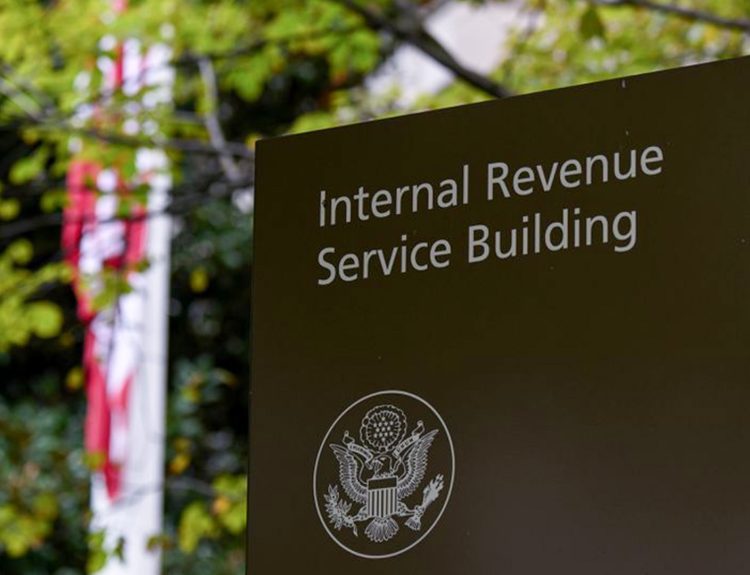The United States is a unique country for many reasons. The different states that make up the union, in many ways, operate as their own tiny countries with different laws and jurisdictions that operate them. There are several significant areas where state laws vary, with abortion rights and gun laws being two of the most significant political arenas.
The Only Country with Gun Rights in the Constitution
The United States is also unique in that it is one of the only countries in the world that has, in its federal constitution, the right to bear a gun. Nearly every other western country has much stricter laws regarding gun ownership, with many disallowing personal ownership of guns at all.
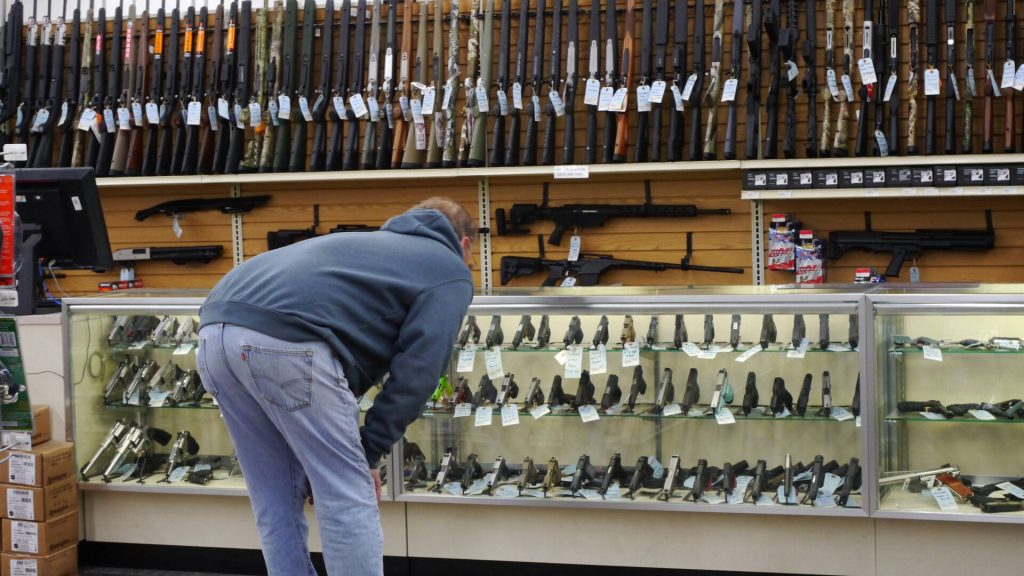
The justification behind these gun restrictions is gun violence. Many other western countries including England, Scotland, Australia, and Canada, tightened gun restrictions following significant acts of gun violence. These restrictions significantly reduced the occurrence of gun crime in these countries, justifying the restraint.
The Second Amendment Stopping Gun Regulation
In the United States, though, the Second Amendment and deeply divided political beliefs have stopped many major laws from passing regarding gun regulation. Any gun laws that pass through state or federal Congresses have been heavily lobbied by organizations such as the National Rifle Association (NRA).
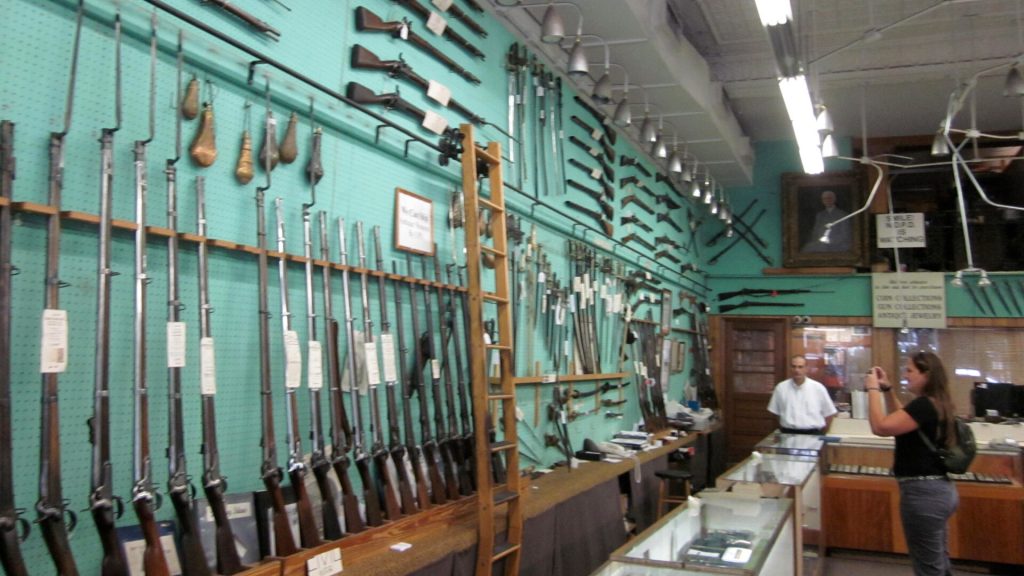
This, as well as far-right rhetoric, has led to many people believing that gun rights are under attack, just as much as liberals argue that women’s rights are under attack. Multiple rallies have been held in the last ten years regarding the sanctity of the Second Amendment, trying to protect what many conservatives see as a fundamental protection against governmental tyranny.
No Regulation for Americans
Many Second Amendment absolutists argue that the Second Amendment allows for the ownership of guns for American citizens, full stop. They argue that the “right to bear arms” allows them to own any type of gun, without any regulation whatsoever.
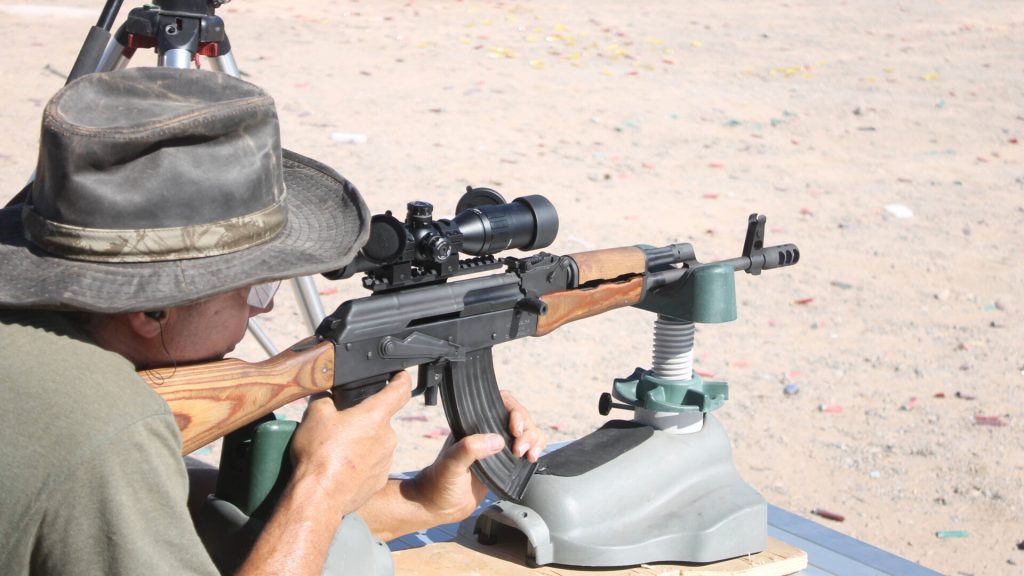
Some more nuanced interpretations of the Second Amendment point out that the purpose of gun ownership was in pursuit of “a well regulated militia, necessary to the security of a free State.” That is, unless one is part of a militia or an organization that protects the freedom of a state or the country, gun ownership is not necessary.
The Federal Assault Weapon Ban
Debates over the intent of the Second Amendment have been ongoing for decades, and there has been significant legislation passed, and rolled back over the years. In 1994, a ban on assault weapons was passed by the United States Congress and signed into law by then-President Bill Clinton, which was a 10-year ban that expired in 2004.
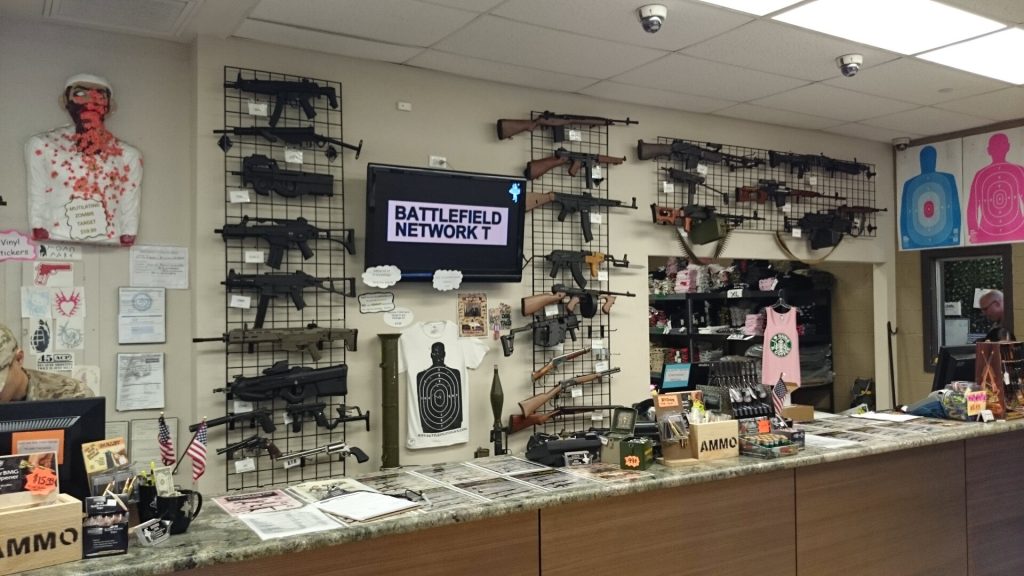
Since then, there have been renewed efforts to reinstate the ban on assault weapons, and to pass greater regulations regarding other types of guns as well. These conversations are renewed every time there’s a major gun-related incident in the country, with some of the most heartbreaking events being the Sandy Hook shooting, the Pulse Nightclub shooting, and the 2017 Vegas shooting.
Unsuccessful Attempts Since
Efforts to instate a federal ban on assault weapons, or institute gun regulation of any kind have been relatively unsuccessful in the years since the original assault weapons ban expired. Republicans have lobbied hard against any sort of gun regulation, up until recently.

One of the significant accomplishments of the Biden administration passed in 2022. The Safer Communities Act – a bipartisan bill which closed the “boyfriend loophole” and includes $750 million to help states run and implement crisis intervention programs, among other things – was the first significant federal legislation addressing gun violence since 2004, and has been lauded as an important step towards addressing many of the issues with gun ownership in America.
Different Laws for Different States
Further federal legislation has yet to be passed, or even brought to the floor of the House or Senate for debate, though, and thus, it has fallen on the states to pass further legislation addressing gun violence in specific regions of the country.

Due to the structure of state law in America, this has led to a significant patchwork of different legislation from state to state. Some states have significantly stricter gun laws while others have little to no regulation at all.
Are Gun Rights Under Attack?
This patchwork of different laws has led some to wonder whether gun laws are truly “under attack” in the United States. This is rhetoric that has come from, specifically, conservative states who see more liberal state’s stricter gun laws as an infringement on citizen’s rights to own guns under the Second Amendment.

Are gun rights truly under attack, though? The structure of government allows different states to make laws regarding their own citizens, without interference from other states or, by and large, the federal government. Some of the changes that have been made in the country might be considered extreme, but that doesn’t make them a violation of rights.
Blocking Various Gun Regulations
On a federal level, a judge recently blocked the Biden administration from enforcing a new rule that would have required background checks for gun buyers under the age of 21. This is a regulation that has been long asked for by liberals, who believe that the responsibility to own a gun should be held as seriously as the responsibility to be able to drink.

In California, a federal judge recently overturned a California law that required gun owners to show good cause to obtain a permit to carry a concealed weapon in public.
And Upholding Others
On the opposite end of the spectrum, a federal judge recently upheld a federal law that bans the sale of bump stocks, which are devices that allow semi-automatic weapons to fire more rapidly.
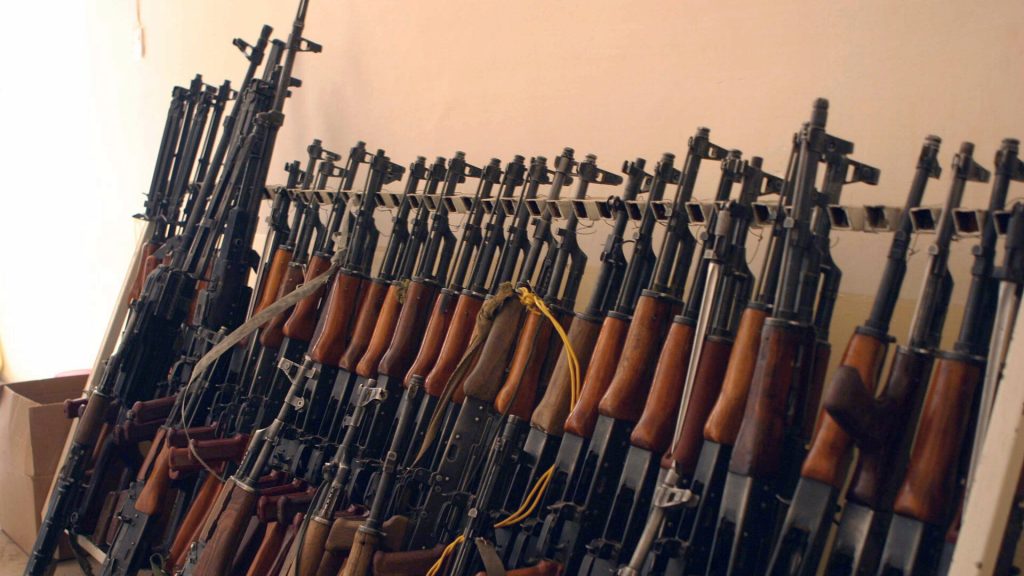
A bump stock is one of the devices that was used in the Las Vegas 2017 mass shooting, which currently holds the record for the deadliest mass shooting in American history. More than 60 people died as a result of that attack, and the shooter was able to fire more than 1000 rounds in less than 5 minutes due to the bump stock on his gun.
State Laws Passing
Federal judges are not the only ones making decisions regarding guns, though. Different states are passing new legislation regarding guns every year, with some states loosening regulations and other states tightening them.

In Washington state, Governor Jay Inslee signed a bill banning the sale of assault rifles and high-capacity magazines, a bill that has been praised by liberals as the right step in the direction of common-sense gun reform. A similar bill also passed in the state of Maryland, and was signed into law by Governor Larry Hogan.
Raising the Minimum Age to Purchase
In Colorado, a bill was passed and signed into law that raises the minimum age to purchase a firearm from 18 to 21. Not only that, it extends the waiting period for gun purchases from three days, to seven days.
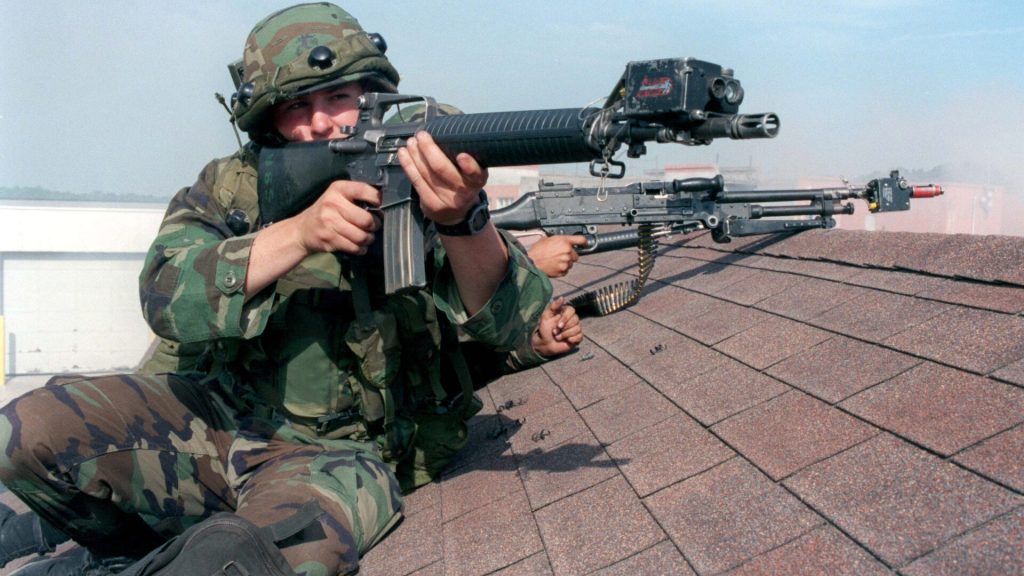
These are laws that have been long asked for by advocates of gun regulation. They argue that many crimes perpetrated by young adults would be prevented by disallowing 18-year-olds from purchasing guns, and by forcing a wait period regarding purchases to prevent hotheadedness from allowing teenagers to make impulsive, and bad choices.
Ballot Initiatives as the Next Step
These bills are all major successes for gun control advocates, but they’re not stopping there. Many groups have turned to ballot initiatives as a method of getting gun control measures to the people for a vote, in states where popular gun control measures have been unable to pass the state legislature for law.
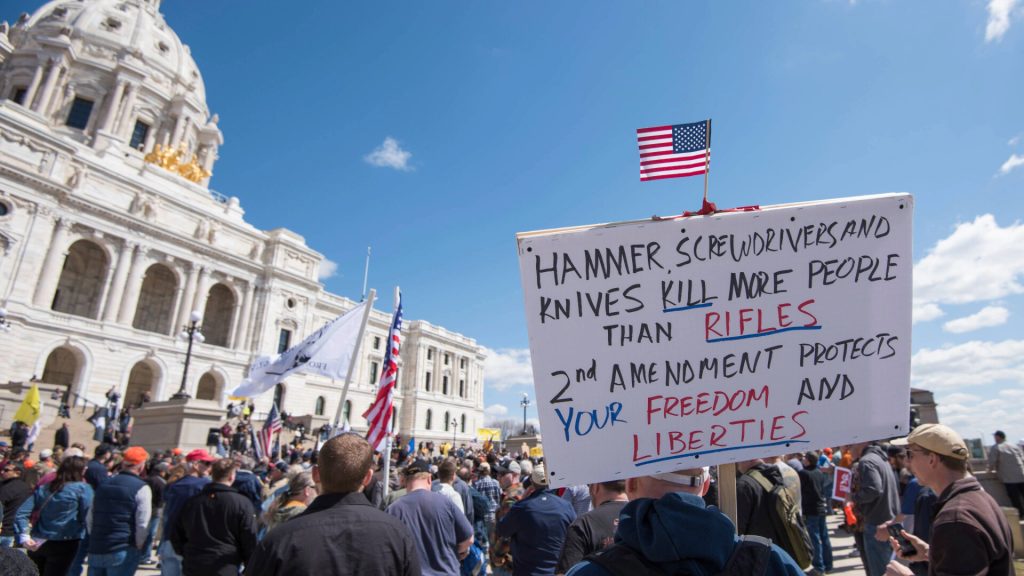
Some of the initiatives that are likely going to be the target for ballot initiatives are assault weapon bans – like those already passed in Washington and Maryland – and universal background checks. These are popular measures that are opposed by gun rights groups such as the NRA, and will likely face fierce opposition if they are ever brought to the ballot for a vote.
Gun Regulation is Popular
Laws surrounding gun rights and regulations are complex, and ever-changing. Various groups are lobbying for both the expansion of gun rights as well as the regulation of them, and these factors are made even more complex with a presidential election looming.
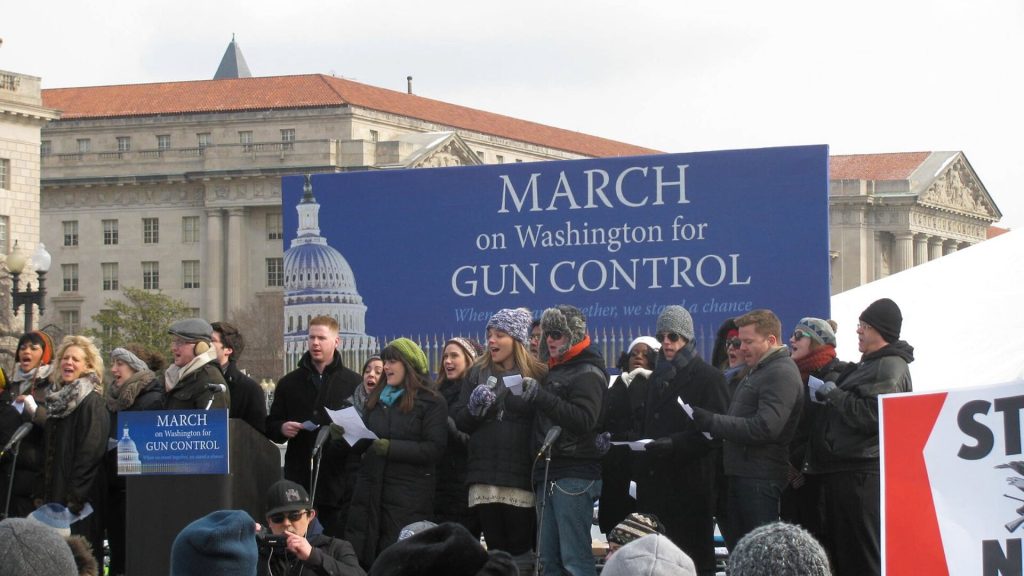
While there are many conservatives who continue to state that liberals want to “take guns away,” the truth of the matter is that gun regulation is a popular idea. Laws surrounding guns are rarely about confiscation, but rather about protecting citizens from those who might do harm with a powerful weapon such as a gun. No right is unlimited, and guns are no exception to that rule.




